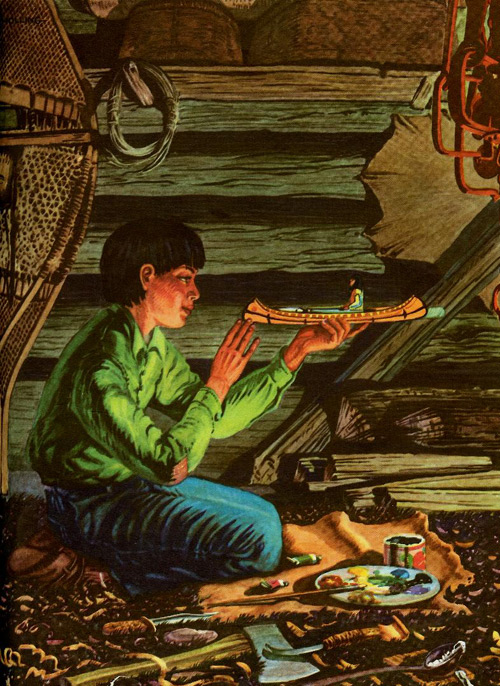The Tin Rudder
In the canoe, the Indian smiled. Once he paused in a stroke, and rested his blade. For that instant he looked like his own Paddle. There was a song in his heart. It crept to his lips, but only the water and the wind could hear.
‘You, Little Traveler! You made the journey, the Long Journey. You now know the things I have yet to know. You, Little Traveler! You were given a name, a true name in my father’s lodge. Good Medicine, Little Traveler! You are truly a Paddle Person, a Paddle-to-the-Sea!’
- Holling Clancy Holling - Paddle-To-The-Sea (1941)

Thomas Merton’s great work, Thoughts in Solitude, begins with the powerfully direct assertion that, “[t]here is no greater disaster in the spiritual life than to be immersed in unreality, for life is maintained and nourished in us by our vital relation with realities outside and above us.” His concept of reality is quite different than many of ours, though. It is the type of hyper-reality, the super-reality, or magical realism, that fills up our spiritual cups in a way that no mere materialism can manifest. Merton’s reality is God.
Reality and unreality, the Sacred and the Profane, these dichotomies are revealed to me relentlessly as I philosophize and study my nights away, but that’s nothing new. The unassuming children’s classic, Paddle-To-The-Sea, may be my earliest memory–my earliest glimpse of understanding–of this natural dualism. It was in the words of the little Indian boy, at last grown to take his father’s role in life that pinned the understanding into my heart.
The child and the old man, they understood the role the Spirit played in the journey of the Paddle Person, and they let me understand it too, even as young as I was. His father’s traps waited for him, just as the day-to-day things in my life wait for me as I go to sleep each night and wake again. The true path, the one he wanted to live, the one with the adventures, began with the Sun Spirit melting the snow on that bank. That was his reality and he never forgot it.
When I read the story as a boy I carved my own wooden boat. My dad helped me write the familiar words on the bottom. “Please put me back in the water.” I don’t recall if we ever set the boat in a stream; that wasn’t the point. Even at that age, before I could fully understand what it all meant, I felt a call to float down stream and have my own adventures with nothing to guide me but “a tin rudder to keep it headed forward, and a lump of lead for ballast.”
Not everyone finds themselves called to set out on the rivers and streams. Some are called to help, to keep an eye out for those travelling along. There are as many callings as there are people. For some of us, all we can hope to do is build our toys and keep them in our memory. I never identified with the little boy in the story, though. I was always the Paddle Person.